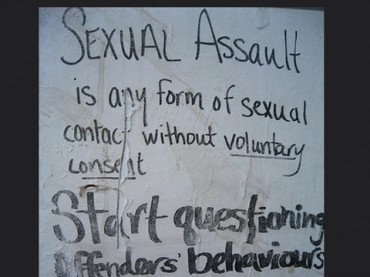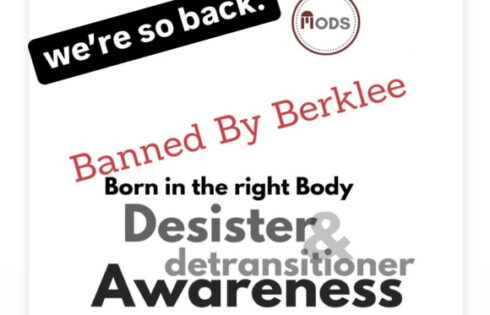
A male student at Stanford University says he was sexually assaulted by a female student, and he is now telling his tale in an opinion piece in the campus newspaper.
He says the experience took place in October 2013; that after a night of drinking and dancing at a party he ended up walking her back to her dorm because all her friends had left the party …
We’d take a few steps holding hands, then take a moment to move off the path and make out with each other for a bit. After a while, these stop-offs became less of a mutual decision and more of a demand from her. I began denying her advances; it was late and I just wanted to get her home safely so I could get some sleep. She continued to engage with me and I denied her requests with a verbal “no” several times. After several failed attempts to push off her advances, we got to the point where I was trading kisses and gropes for steps back to her dorm. Several times her hands went down my pants, and I was not okay with it. I did my best to stick to my “no” every time she demanded more, but at each denial she would stop dead in her tracks and refused to walk with me unless I complied. I felt stuck. Dragging her back to her dorm with her fighting against me simply didn’t feel right. Physically fighting her struggle was not the safest means to that end. But, it didn’t feel right to abandon her there either. She was drunk and could not be left alone in the state she was in. So I felt I had only one option: I complied.
The impression we are left with is he had sex with her. But the details are unclear. On the path to her dorm? In her bed? There are a lot of unanswered questions.
Nearly a year after the incident – and after the “yes means yes” definition of sexual assault on campus gained prominence and became state law in California – he ended up calling campus rape advocates for advice:
I began recounting my experience to the woman on the other line. I told my side of the story and she listened attentively until I ended with the simple question, “Does this qualify as sexual assault?” After a short moment acknowledging the difficulty of all the factors at play, what she said left me flabbergasted.
“You just have to be careful,” she said to me plainly. She began to outline how situations like these are difficult when alcohol is involved, but when I reiterated that I clearly said “no” and felt trapped in the situation she continued to astound me with her suggestions at what I should or could have done. “You could have just left her,” she insisted. “If I were a man in your shoes, I would have definitely called 911.” At this point it was tough to hold back my frustration. I was calling this hotline because I was trying to figure out if what I experienced was sexual assault.
Ultimately he got in touch with a campus official who was more sympathetic to his plight.
Writing in Business Insider, Peter Jacobs points out “sexual assault of men is not as rare as one might think. … Still, male sexual assault by a female is rarely discussed, and sometimes even dismissed as impossible.”
In a statement to Business Insider, Stanford stated that “it is crucial to recognize that sexual assault can impact all members of our university community, and it is our highest priority to provide the education and support necessary to create a safe campus for everyone.”
Like The College Fix on Facebook / Follow us on Twitter
h/t: College Insurrection
IMAGE: Nicoel-mitchell-duff/flickr





Please join the conversation about our stories on Facebook, Twitter, Instagram, Reddit, MeWe, Rumble, Gab, Minds and Gettr.